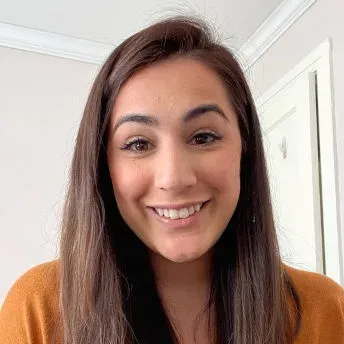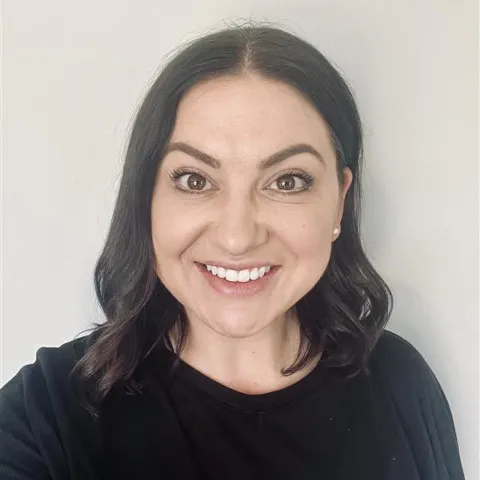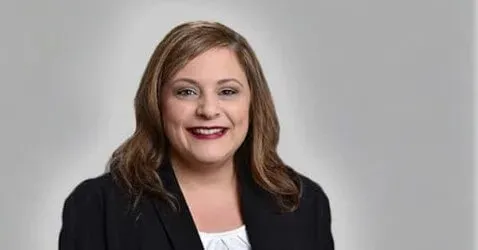A Supportive & Innovative Ed.D. Dissertation
At Marymount University, we aim to elevate your Online Doctorate in Education (Ed.D.) experience and empower you to make a meaningful impact. You will grow professionally and personally as you delve into meaningful research and leadership topics that will propel your career trajectory.
Gain an advanced understanding of the theory and skills required to become a more confident and strategic leader. Our renowned team of professors and faculty mentors will give you the tools and guidance you need to design solutions for a real-world problem you are passionate about solving. Upon graduation, you will be a published author contributing to the academic and research community for years to come.
Learn more about our innovative Online Ed.D. program that gives you scaffolded support, an embedded dissertation experience and a high-impact community to guide you every step of the way.
Dissertation in Practice
Unlike a traditional dissertation, Marymount Online Ed.D. students complete a dissertation in practice (DiP) that emphasizes the application of research and theory to provide a solution to a problem of practice that your organization or industry is facing. A DiP provides a practical and applied focus to actively solve problems in your community or organization. This is in comparison to a traditional dissertation grounded in academic theory, usually associated with prolonged programs and Ph.D. degrees.
The chart below outlines general and key distinctions between each type of dissertation.
|
Compare Dissertation Types |
Dissertation in Practice |
Traditional Dissertation |
|---|---|---|
|
Focus |
Addresses real challenges in a practical context |
Contributes to theoretical knowledge or advances existing research |
|
Purpose |
Emphasizes practical application and solutions |
Focuses on original research and theoretical contribution |
|
Approach |
Applied research, often involving collaboration with practitioners |
Independent research with an emphasis on data collection and analysis |
|
Evaluation & Defense |
Practical outcomes and contributions |
Research quality and literature contributions |
Your own research journey may take unexpected and inspiring turns. To give you a glimpse of the exciting possibilities that await, here are some of the dissertation topics Marymount students have completed:
- Empowering Leaders for Effective Organizational Change: Unveiling the SPY2 Methodology
- Leadership Matters: Affecting Social Transformation in Africa
- The Lack of Hispanic Leadership in Higher Education: A Qualitative Study of Current Leaders at U.S. Universities
- The Relationship Between English Language Proficiency Level and Growth in Reading: A Quantitative Analysis of English Learners in First, Second, and Third Grade
Next Application Deadline:
Our next term is starting soon. Don't miss out! Complete the form to view application requirements and upcoming deadlines.
Exceptional Faculty Support
One of the biggest advantages of studying online with Marymount is the exceptional faculty support. The dissertation process is embedded into course assignments and scaffolded throughout the Online Ed.D. program, allowing you to receive feedback from distinguished faculty and your committee. This also allows for an expedited timeline for completion as you are working on your dissertation while you are completing relevant courses.
Play the video to hear more details about the Dissertation in Practice, Lead Doctoral Faculty Mentor program and high-impact online community at Marymount.
What’s a Lead Doctoral Faculty Mentor?
You are strategically paired with a Lead Doctoral Faculty Mentor (LDFM) in Semester 4, prior to your Applied Methods course. Your LDFM will not only be your dissertation chair but also a mentor and guide throughout the dissertation process. LDFMs are highly trained through Marymount and introduced earlier than dissertation chairs in other programs to ensure that sufficient progress can be made on your dissertation alongside your coursework.
All LDFM’s are practicing scholars with diverse backgrounds specifically assigned to students through an in-depth matching process based on personal working styles, research design, topic and methodology. Throughout the program, you will connect with your LDFM, discuss your intended topic and continuously map out the next stages of your dissertation journey. You may even attend the same virtual events together, like sync sessions, office hours, professional writing labs, retreats, seminars —and more.
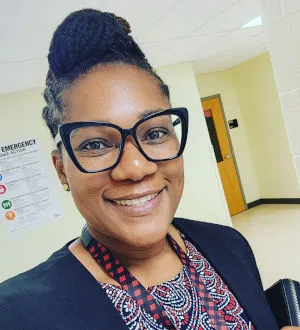
Interests: recruiting and retaining diverse teachers for public schools
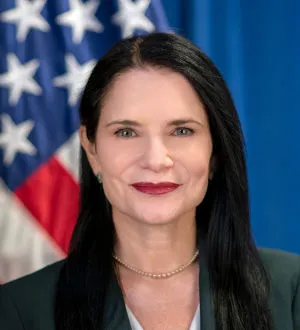
Interests: federal government, K-12/post-secondary education, strategic planning & change management

Interests: dual enrollment, higher education policy, transfer and articulation & first-generation students
The Write Up! Institute
How do we help leaders in business, healthcare, education, the non-profit sector, and government achieve their goal of becoming doctors in their fields? We equip them with the skills to produce scholarly writing.
Come to FOCUS. Come to WRITE. Leave INSPIRED. This is the mission and the pulse of the Write Up! Institute. Dissertations, academic journal articles, and research papers fall into their own genre of writing. People who are looking to obtain their EdD are committed professionals ready to excel in their fields as scholars, but often find themselves intimidated by conducting their own research and by academic writing. And for good reason, the transition to academic writing seems to be one of the biggest hurdles faced in doctoral programs and is a supporting cause of the high attrition rates associated with EdD programs.
We have addressed this perceived barrier to success through the creation of the Write Up! Institute, a strong pillar of support for students in our program that provides the acute support needed to grow their practice in academic writing and achieve their goal of obtaining their doctorate. By honing this skill through live workshops with authors, methodologists, faculty, and experts in research design, who are all committed to providing scaffolded supports, students leave our program not only as thoughtful and innovative organizational leaders, but individuals equipped with the skills to give back to their respective fields as scholarly-practitioners and research-based institutional professionals. Choose the program that includes the dissertation, knowing that you will have the utmost support in achieving your goals.
There are two types of offerings in the Write Up! Institute.
The Write Up! Lab is available to all doctoral students, regardless of where the student is in their program of study. The Lab provides virtual live workshops on topics related to research and academic writing throughout the year. You’ll have an opportunity to learn outside of the classroom from various professors and guests, engage in conversation with your peers across cohorts about their research, and much more. The live Labs are then recreated into asynchronous learning modules and added to the Write Up! online resource center, always available to students in their moment of need. In addition, the Write Up! Lab hosts “Scholar Block Parties,” where students have time to concentrate on writing in community with faculty, other doctoral students, and alumni. The Block Parties will also include structured time to debrief, ask questions, and receive feedback on the writing process and your work.
The annual Write Up! Retreat is an optional multi-day event that provides participants who are in semesters 6 or 7 of the EdD program the space, time, support, and guidance to hone their Dissertation in Practice (DiP). This event is offered in-person with virtual pre- and post-sessions, exclusive to retreat attendees that are intended to extend the retreat experience into the attendees' daily writing practice allowing for a richer integration of what it means to be a scholar-practitioner. This experience includes one-on-one sessions with faculty, optional workshops, and a co-created safe, mindful, heart-centered space to be curious, make mistakes, engage in intellectual conversations, and write in community.
See a culmination of offerings this year here.
Read words from the founder of the Write Up! Institute here.
A Carnegie Project on the Education Doctorate
Marymount is a proud member of the Carnegie Project on the Education Doctorate (CPED). Our LDFM program is proactively designed to encompass CPED’s mentorship best practices that include:
- Mutual respect
- Equity and inclusion
- Dynamic learning
- Empathy and flexibility
- Individualized attention
- Continuous improvement



